How staying home helped Jane Goodall reach more people than ever
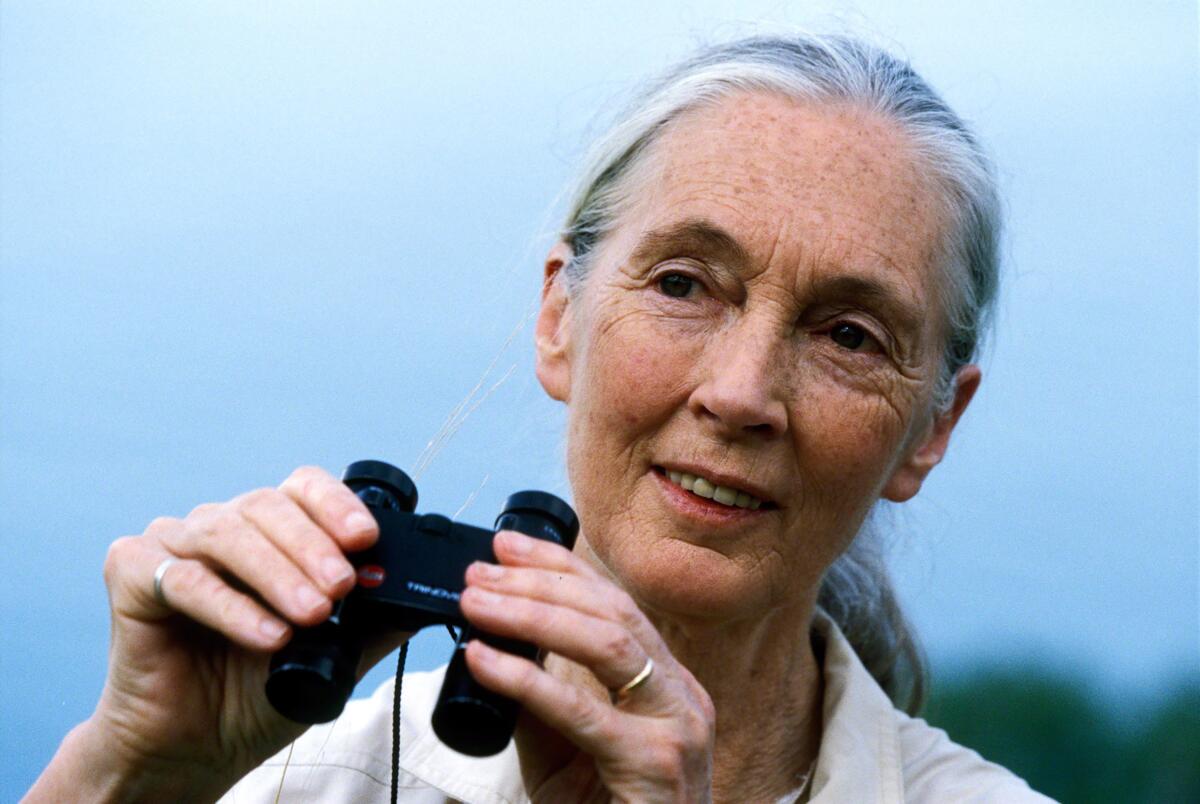
)
Good morning, and welcome to the L.A. Times Book Club newsletter.
The pandemic grounded Jane Goodall, who reluctantly gave up a globe-trotting life that put her on the road 300 days a year. Instead, she’s been sequestered at her family home in the south of England, far from the forest in Tanzania where her Jane Goodall Institute continues her research on chimps and conservation.
“I was frustrated and angry,” Goodall concedes in a recent interview. But, she came to realize, “that wasn’t going to help anybody.”
With the assistance of a tech consultant and her institute staff, the anthropologist, activist and U.N. messenger of peace shifted to online engagements and now reaches more people in many more countries than ever before. Additionally, she says, “It’s better for the environment if we don’t always travel all the time.”
On Feb. 25, Goodall will join L.A. Times Book Club readers for a virtual conversation with reporter Dorany Pineda about her groundbreaking work and “The Book of Hope: A Survival Guide for Trying Times.”
Goodall also is the subject of “Becoming Jane: The Evolution of Dr. Jane Goodall,” an interactive exhibit at the Natural History Museum of Los Angeles County.
Join us: Get tickets for our February book club discussion on Eventbrite.
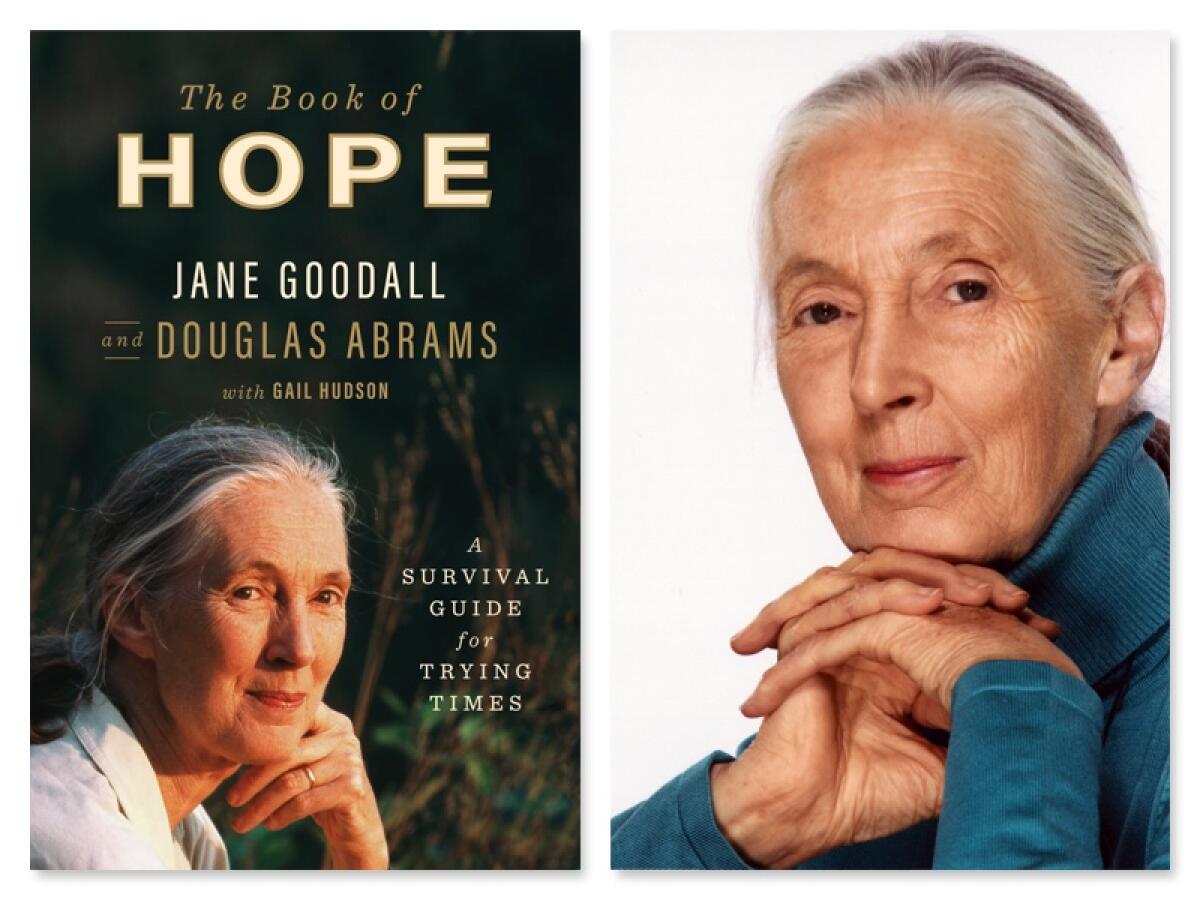
Library journey
In March 2017, shortly before her daughter, Riley’s, first birthday, Megan Panatier began a quest to visit every Los Angeles Public Library.
“I wanted a way to explore Los Angeles with her, and a way to explore the best thing on the planet. Books. Children’s books, more precisely,” Panatier, a school speech-language pathologist, wrote in her online diary. “There are so many books out there and I can’t keep up.”
“So the plan is to go to all 72 of the LAPL library branches over the next few months ... years? I don’t know how long it will take, and I’m not in a hurry.”
Flash-forward to 2022: Riley is now in kindergarten. Mom and daughter have completed their mission — and then some. Panatier says they continue exploring libraries and expanded to museums such as the Natural History Museum, which book clubbers are visiting this month too.
This week, Panatier shared some insights about their experiences.
What are your favorite libraries?
We love the branches closest to our house because they’re super convenient for in-person browsing. We’re near three different library systems: the Sunland-Tujunga branch of LAPL, La Crescenta branch of L.A. County and Montrose branch of Glendale. Yes, Riley and I both have three different library cards each. We often use the e-media links and get books sent straight to our devices without even leaving the house and get access to movies and online learning too; it’s seriously amazing. A library card is like having a never-ending gift card.
Which were the most memorable?
Riley loves library branches with zine libraries, such as Edendale and Baldwin Hills. Finding small, tiny books that are kid-size, made by regular Angelenos, is a great delight. She wants to make her own zine one day so it can be in the library too.
What are your daughter’s favorite books?
She seems to have a new favorite with each pile of books we bring home. Currently her favorites are “Poultrygeist” by Eric Geron, “Itty-Bitty Kitty-Corn” by Shannon Hale, “Outside, Inside” by LeUyen Pham, “Born on the Water” by Nikole Hannah-Jones and “Aaron Slater, Illustrator” by Andrea Beaty.
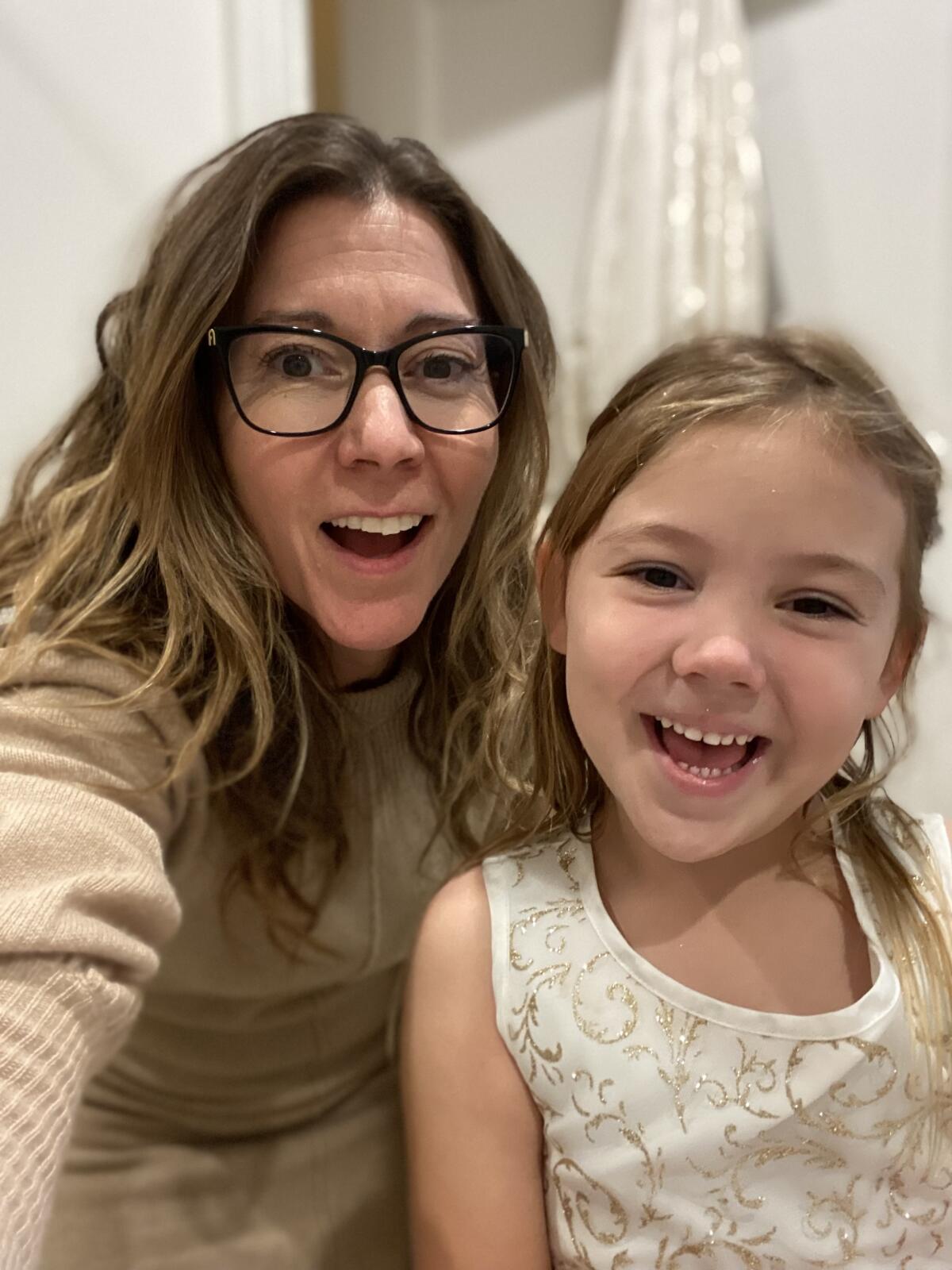
What surprised you most?
I was surprised at just how many resources are available through our public libraries. You can get a high school diploma with Career Online High School; you can get help with taxes; you can get help to become an American citizen through the New Americans Initiative; you can read to a dog through Bark: Read to the Dogs; you can play board games; and attend numerous talks through the library’s YouTube channels. You can find books in lots of languages that are spoken in your neighborhood. There’s even an Aphasia Book Club in Echo Park!
Is there a new adventure on the horizon?
Going to the library will always be part of our regular routine. It’s the easiest and cheapest way to get good stories, especially books on CD for the car, and to feel like a part of our community. Riley’s new adventure is being in kindergarten ... and my adventure is continually adapting and using the books we check out — with my speech students for their speech and language goals in schools — for work. We’ve even taken advantage of the LAPL’s Explore L.A. with the Discover & Go program and gotten free tickets to visit the Natural History Museum. Maybe we’ll visit all of L.A.’s museums next as a new adventure.
March book club
On March 29, author Reyna Grande will join book club readers for a virtual conversation with Times editor Steve Padilla about her new novel, “A Ballad of Love and Glory.”
Set in 1846, Grande’s historical saga follows a Mexican Army nurse and a disheartened Irish soldier during the Mexican-American War. “It’s a great story and a revealing look at a lesser-sung chapter of American history,” says Publishers Weekly.
Grande is the author of a bestselling 2012 memoir, “The Distance Between Us,” about a childhood torn between Mexico and California. In 2018, she published “A Dream Called Home,” a sequel.
Join us: Tickets are available on Eventbrite.
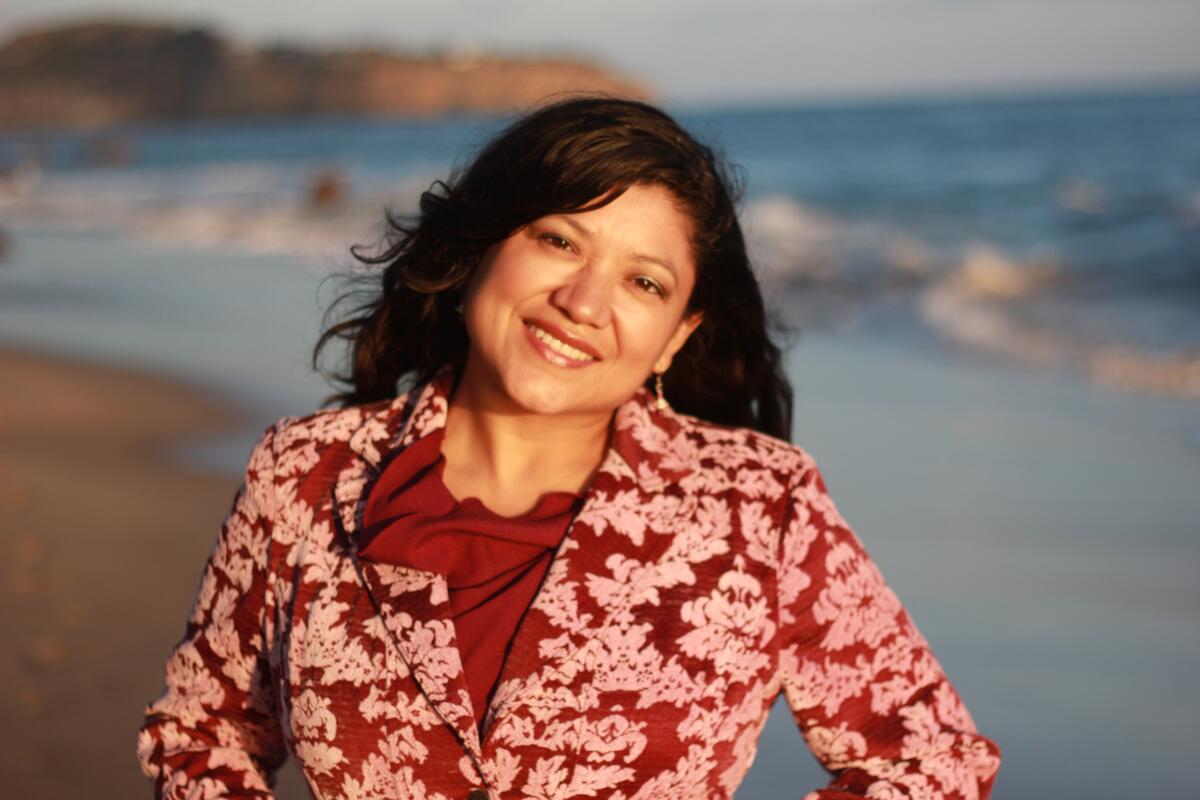
If you enjoy community discussions like this one: Since the start of the pandemic, The Times has made many book club conversations free and virtual so readers can easily participate from home and connect with world-class authors and newsmakers. [Video: Revisit our year of reading in 2021.]
Now we need your help to keep going and growing through the new Times Community Fund. Learn more: How to support the L.A. Times Book Club and Book Prizes.
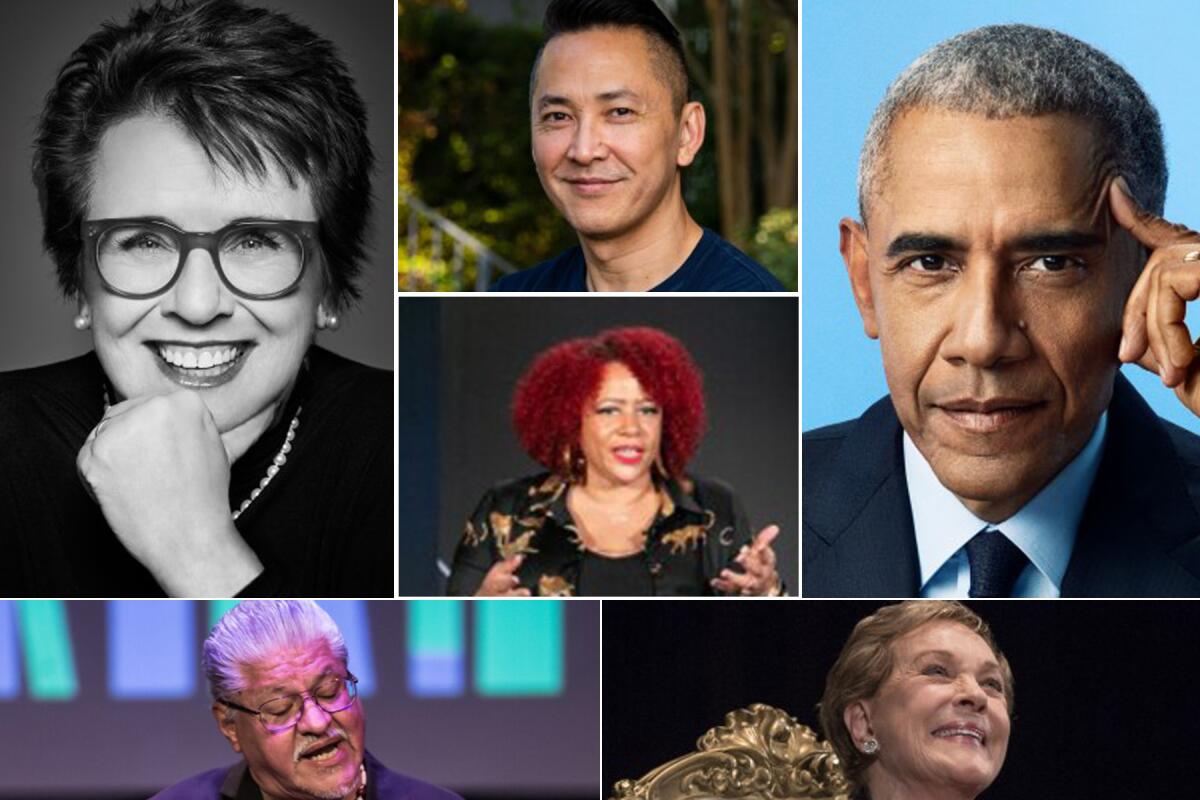
Keep reading
Sixteen indie bookstores owned by writers: Mental Floss compiled this must-read list, which includes our December book club guest, Ann Patchett, and poet Jhoanna Belfer, who was inspired by Patchett to open Bel Canto Books in Long Beach. If you haven’t visited yet, Bel Canto is inside Retro Row’s lively Hangout, and each month it features releases centered around a theme, with a focus on works by underrepresented voices.
Banned books: When a Tennessee school board banned “Maus,” the Art Spiegelman graphic novel set in 1940s Poland during the Holocaust, a California comic book store began donating copies to readers. “It’s a historical biography,” says Comics Conspiracy owner Ryan Higgins. “The actual imagery of the Holocaust is way worse than anything in ‘Maus.’”
In the news: Los Angeles novelist Janelle Brown (“I’ll Be You”) is on the cover of Publishers Weekly.
China and free speech: Times Managing Editor Scott Kraft will moderate a Feb. 24 virtual conversation with Rebecca Davis of Variety, author Erich Schwartzel and Emmy Award-nominated writers Robert and Michelle King. “Censored by China: Defending Creative Expression in a Global Market” is presented by the L.A. Times Virtual Ideas Exchange and PEN America. Sign up on Eventbrite.
From page to screen: In a new series, Bonnie Johnson takes a critical look at the latest screen adaptations of books. First up: Kenneth Branagh’s latest stab at the Agatha Christie universe, “Death on the Nile.”
From page to opera: Friday was author Lisa See’s birthday. See’s bestselling book “On Gold Mountain” chronicles her Chinese American family’s immigrant experience in California. It is being transformed into an opera at the Huntington’s Chinese Garden in May.
Her experiment: Nobel laureate Toni Morrison would have turned 91 on Friday. Her only short story, “Recitatif,” has just been published as its own book with an introduction by Zadie Smith. “I might suggest you read Morrison’s story first and Smith’s introduction afterward,” says former Times books editor David L. Ulin. “The pieces are very much in conversation with each other. Equally important, both seek to be in conversation with us.”
Literary L.A.
A note from Times books editor Boris Kachka: “As we prepare for the first in-person L.A. Times Festival of Books in three years, the books section is planning a special issue that meets this exciting moment. We want to showcase Los Angeles as a glorious world city of literature — a vast geography of readers, writers and places that inspires deep thinking, passionate engagement and great work.”
Tell us: What does literary L.A. mean to you? What bookstores do you love? What writers do you think of when you think of Los Angeles? What’s your favorite passage from an L.A. book? Where do you like to get your reading or writing done, and where do you go when you need to connect with other readers and the writers you love?
Send your comments in an email to [email protected] or via Twitter @latimesbooks.
Help wanted
Volunteer Beverly Glass talks about her experiences during the Festival of Books, which returns to the USC campus April 23-24: “My mom, who was a school librarian at the time, attended the first Festival of Books (in 1996). She had a terrific time, so I went the next year as a guest. I began volunteering soon after and have ever since.
“A favorite memory of mine is the year I had the honor of being an author escort for Ray Bradbury. It was a joy to take him to [UCLA’s] Royce Hall and be of assistance to him that day. Volunteers come from all walks of life, students, retired people, as well as those employed in every line of work. It is a special experience to be a part of this team, this family.”
Learn how to volunteer at this year’s festival here.
Sign up for our Book Club newsletter
Get the latest news, events and more from the Los Angeles Times Book Club, and help us get L.A. reading and talking.
You may occasionally receive promotional content from the Los Angeles Times.




